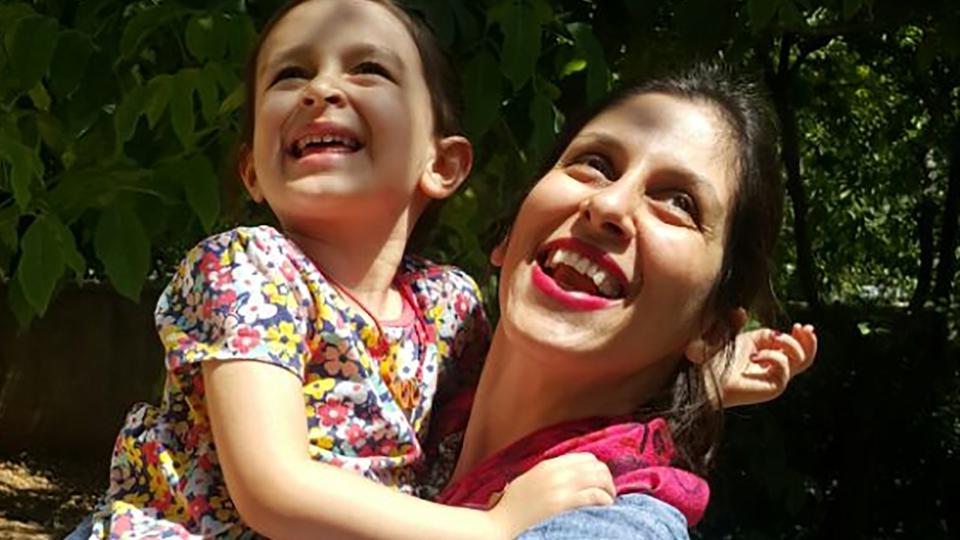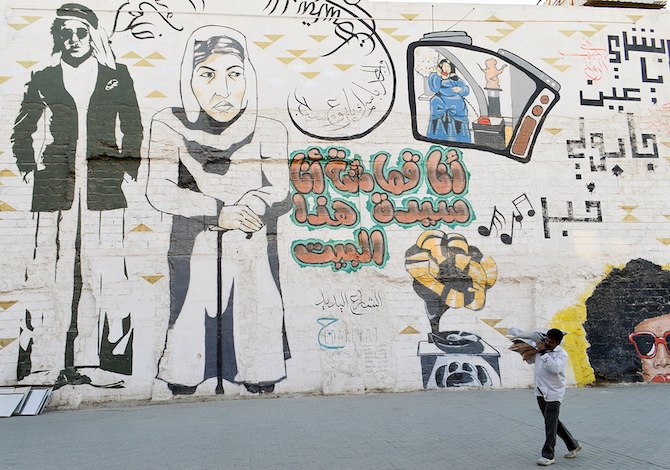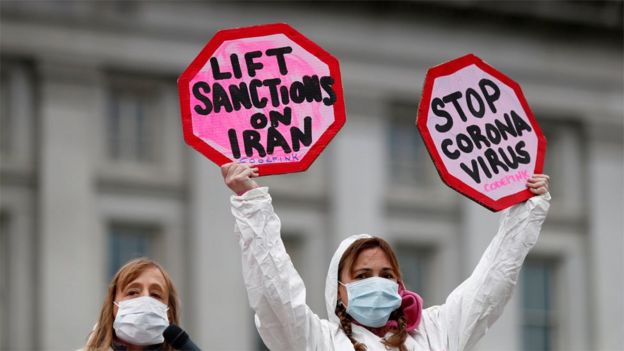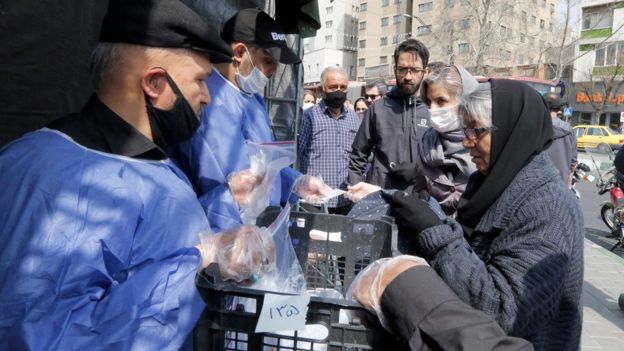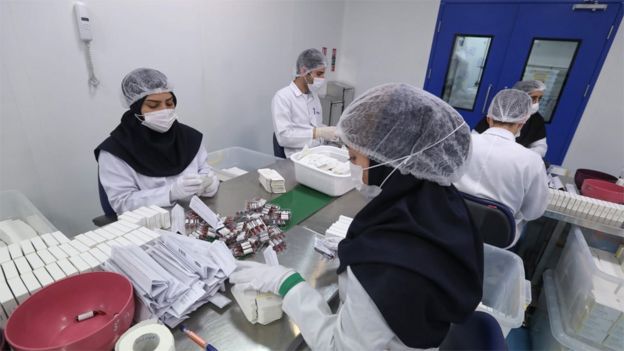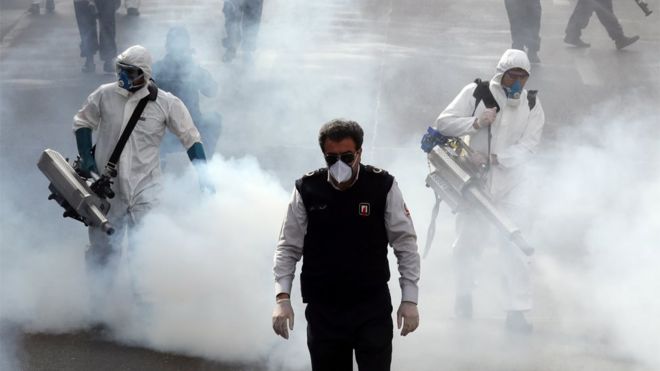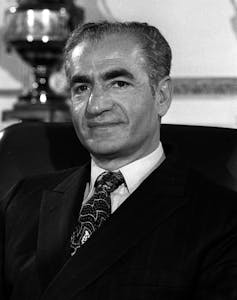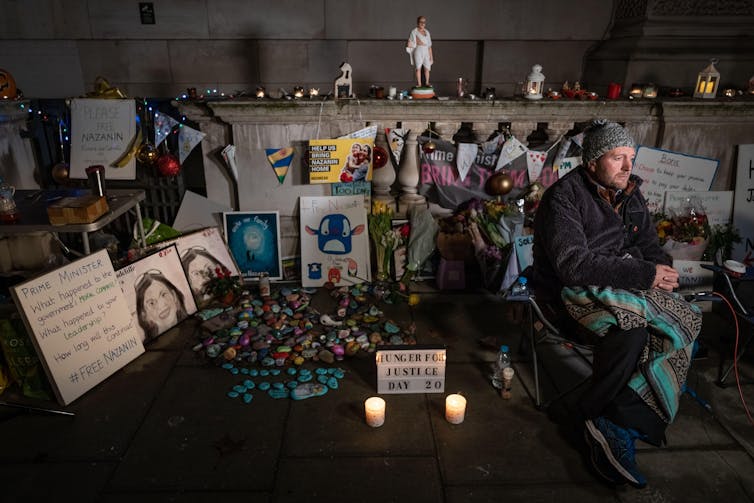Sophie Wingate, PA Political Correspondent
A British-born environmentalist who was jailed for more than four years in Iran has been released on furlough with an electronic tag.
Morad Tahbaz, 66, is at his family’s home in Iranian capital Tehran, the Foreign, Commonwealth and Development Office (FCDO) said on Wednesday.
The wildlife conservationist was allowed out on furlough on the day Nazanin Zaghari-Ratcliffe and fellow dual national Anoosheh Ashoori were freed and allowed to return to the UK in March, but he was returned to custody after just two days.

Nazanin Zaghari-Ratcliffe and Anoosheh Ashoori arriving at RAF Brize Norton in March
His daughter Roxanne Tahbaz confirmed he is on a “temporary furlough in Iran with an ankle bracelet”, saying in a statement she was glad he could be with his wife and get the medical care he urgently requires.
“However, the UK Government’s work is unfinished. My father is a UK-born national and he and my mother should have been on the flight with Nazanin and Anoosheh four months ago,” she wrote.
“They should be free. Home is not in Iran, home is with their children.
“As the Foreign Secretary campaigns on a promise of results and delivery to the nation, I hope she will stand by her promise to my family and to my father and ensure his unconditional release.”
An FCDO spokesperson said: “The Tahbaz family have confirmed Morad has been released from Evin prison on furlough and is at their home in Tehran.
“Morad is a tri-national and we continue to work closely with the United States to urge the Iranian authorities to permanently release him and allow his departure from Iran.”
It is understood that Foreign Secretary Liz Truss has told Mr Tahbaz’s family the UK could not secure his full departure from Iran because he is also a US citizen, and Iranian authorities are also having discussions with US counterparts.
Ms Tahbaz, who has been campaigning for her father’s release for months, in June accused ministers of failing to keep a dialogue open with her about measures being taken to secure his release.

Roxanne Tahbaz, Richard Ratcliffe and Nazanin Zaghari-Ratcliffe after her release from detention in Iran in March (Victoria Jones/PA)
“Our father has been unjustly jailed in Iran for nearly four and a half years, but Liz Truss and the Government still haven’t informed us over what they’re doing to secure his release,” she said at the time.
“There doesn’t seem to be any sense of urgency – nothing to suggest the Foreign Secretary and her office feel they need to get my father out of prison immediately”.
In March, the UK said it had secured Mr Tahbaz’s furlough, along with the release and return of Mrs Zaghari-Ratcliffe and Mr Ashoori.
This came after the UK Government finally agreed to settle a £400 million debt to Iran dating back to the rule of the Shah in the 1970s.
But two days later Mr Tahbaz was forced to return to Evin prison.

Evin prison in the north-western suburbs of Tehran (Alamy/PA)
Eilidh Macpherson, Amnesty International UK’s individuals at risk campaign manager, said: “This is very encouraging news but we’ve been here before and we now need to see the UK pressing hard for Morad’s full, unconditional release and permission for him to leave Iran along with his wife Vida.
“Back in March when Morad was given a temporary release for just 48 hours, it was clear the Iranian authorities were once again playing cruel games with a British national for diplomatic gain.
“It goes without saying that Morad should never have been jailed in the first place and it remains a matter of grave concern that British nationals continue to be held arbitrarily by the Iranian authorities like this.”
Mr Tahbaz, a prominent conservationist and board member of the Persian Wildlife Heritage Foundation, was arrested during a crackdown on environmental activists in January 2018.
He was sentenced to 10 years in prison with his colleagues on vague charges of spying for the US and undermining Iran’s security.
His wife has also been placed under a travel ban by the Iranian authorities.


